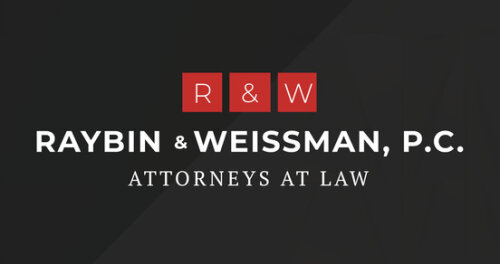Best Motor Vehicle Defect Lawyers in Nashville
Share your needs with us, get contacted by law firms.
Free. Takes 2 min.
List of the best lawyers in Nashville, United States
About Motor Vehicle Defect Law in Nashville, United States
Motor vehicle defect law covers legal claims that arise when a motor vehicle or vehicle component is defective and causes harm, property damage, or economic loss. In Nashville, as in the rest of Tennessee, these claims can arise against manufacturers, part suppliers, dealers, repair shops, and sometimes third parties involved in vehicle maintenance or modification. The law draws on several legal theories - product liability, negligence, breach of warranty, and statutory remedies - and may involve both state and federal rules. Cases commonly turn on whether a defect was present when the vehicle left the manufacturer or when a part was installed, whether the defect caused the injury or damage, and whether claims were filed within applicable time limits.
Why You May Need a Lawyer
You may need a lawyer if you are dealing with a significant injury, extensive property damage, or a serious safety defect in a vehicle. Common situations include:
- Crashes caused by alleged vehicle defects such as faulty brakes, airbags that do not deploy, steering failures, or tire blowouts.
- Discovery of recurring mechanical problems that the dealer or manufacturer cannot fix, especially in new vehicles that may qualify under lemon law or warranty protections.
- Economic losses from a vehicle that is unusable due to a defect, or claims for diminished value after a repair related to a defect.
- Claims against parts suppliers or aftermarket manufacturers for defective components.
- Difficulty obtaining compensation from manufacturers, or when an insurer denies or undervalues a claim.
A lawyer experienced in motor vehicle defect matters can evaluate the strength of your claim, preserve evidence, identify responsible parties, explain your legal options, and negotiate or litigate on your behalf.
Local Laws Overview
The legal framework relevant to motor vehicle defect claims in Nashville includes several key elements:
- Product liability law - Claims can be based on design defects, manufacturing defects, or a failure to warn. Tennessee recognizes strict liability in some product defect cases, which can make a manufacturer responsible without proof of negligence when a defective product causes injury.
- Warranty law - Express warranties in sales contracts and implied warranties of merchantability or fitness for a particular purpose can provide remedies when a vehicle or component fails to perform as promised. Federal law under the Magnuson-Moss Warranty Act may also apply to consumer warranty disputes.
- Lemon law and new vehicle remedies - Tennessee provides remedies for buyers of new vehicles that have substantial, nonconforming defects that the manufacturer cannot repair. There may be state procedures for arbitration or statutory notice requirements to pursue these claims.
- Negligence - When a defect results from negligent design, manufacturing, inspection, or repair, negligent-party liability may apply. This theory is often used along with product liability claims.
- Recalls and safety investigations - Vehicle defects that present a safety risk may trigger manufacturer recalls and investigations by federal agencies. Recall notices, repair histories, and manufacturer communications are important evidence.
- Timelines and procedural rules - Statutes of limitations and notice requirements determine how long you have to file different types of claims and whether you must notify the manufacturer or seller before suing. These time limits vary by claim type and can be strict, so early legal consultation is important.
Frequently Asked Questions
What qualifies as a motor vehicle defect?
A motor vehicle defect can be a design defect, manufacturing defect, or a failure to warn. A design defect exists when a vehicle or component is inherently unsafe as designed. A manufacturing defect occurs when an item departs from its intended design during production. A failure to warn happens when the manufacturer does not provide adequate instructions or safety warnings about known risks.
Who can be held liable for a defective vehicle or part?
Potentially liable parties include the vehicle manufacturer, parts suppliers, component manufacturers, dealers, distributors, and repair facilities. Liability depends on the nature of the defect, when it occurred, and the relationship between the parties and the injured person.
What types of damages can I recover?
You may be able to recover medical expenses, lost wages, pain and suffering, property damage, repair or replacement costs, and in some cases punitive damages if the conduct was especially reckless. In warranty or lemon law cases, remedies may include replacement, refund, or reimbursement for repair costs and related losses.
What should I do immediately after discovering a defect or being injured?
Prioritize safety and medical care. Preserve the vehicle without altering the suspected defect if possible. Document the condition with photos and notes, keep repair invoices and communication with the dealer or manufacturer, obtain the crash or incident report if applicable, and avoid signing waivers or settlement agreements before speaking to a lawyer.
How do vehicle recalls affect my claim?
A manufacturer's recall or safety notice can support your claim by demonstrating that the manufacturer knew about a defect. If a recall repair was ineffective or you were harmed before the recall, that history is important evidence. Keep all recall notices and repair records.
What is the role of federal agencies in defect cases?
Federal agencies such as the National Highway Traffic Safety Administration receive safety complaints, open investigations, and order recalls when warranted. Filing a safety complaint can help trigger federal investigation and produces a record that may support private claims.
Do I have to go to arbitration instead of court?
Some purchase agreements and warranties include arbitration clauses that require disputes to be resolved through arbitration rather than in court. The enforceability of these clauses depends on the specific contract terms and applicable law. An attorney can review your documents and advise whether arbitration is mandatory and whether the clause may be challenged.
How long do I have to file a lawsuit in Tennessee?
Time limits vary by claim type. There are statutes of limitations and statutory notice requirements that affect product liability, personal injury, property damage, and warranty claims. Missing a deadline can bar recovery, so consult a lawyer promptly to determine the applicable timeframes for your case.
Can I sue the dealer if they could not fix the problem?
You may have claims against a dealer if the dealer breached express promises, failed to properly repair the vehicle, or acted negligently. However, dealer liability for manufacturing defects is often limited, and recovery against the manufacturer or part supplier may be more direct. A lawyer can identify the best targets for a claim.
How do I choose a lawyer for a motor vehicle defect claim in Nashville?
Look for a lawyer with experience in product liability, auto defect litigation, and consumer protection law. Ask about their trial experience, how they handle fees and costs, whether they work on contingency, and how they will communicate with you. Request references and a clear explanation of likely next steps and timelines.
Additional Resources
When researching defects and seeking help in Nashville, consider contacting or using resources from these organizations and agencies:
- Tennessee Department of Commerce and Insurance - Consumer services for complaints and information related to consumer protection and warranties.
- Tennessee Attorney General - Consumer protection division for guidance on statewide consumer rights and reporting unfair practices.
- Tennessee Department of Safety and Homeland Security - for vehicle registration, title, and driver services information.
- National Highway Traffic Safety Administration - federal records on recalls, safety defects, and complaint submissions.
- Legal Aid Society of Middle Tennessee and the Cumberlands - may provide assistance or referrals for eligible individuals who cannot afford private counsel.
- Tennessee Bar Association and local Nashville bar sections - resources to find qualified attorneys and information about lawyer referral services.
- Local law firms that specialize in product liability and motor vehicle defect litigation for consultations and representation.
Next Steps
If you suspect a motor vehicle defect or have been harmed, take these steps:
- Ensure safety and get medical care. Your health and a clear medical record are priorities.
- Preserve evidence. Do not alter the vehicle if possible. Photograph the problem, keep repair orders, maintenance records, purchase documents, and any communication with the dealer or manufacturer.
- Report the problem. Notify the dealer and manufacturer in writing, and consider filing a complaint with the appropriate state consumer office and the federal safety agency.
- Contact an experienced attorney promptly. Early legal review helps preserve claims, meet notice requirements, and identify the correct parties to hold responsible.
- Be careful about communicating or signing releases. Do not sign away rights or accept quick settlements without legal advice.
- Track deadlines and follow your lawyer's guidance. Timely action increases the chance of a favorable outcome, whether through settlement, arbitration, or trial.
Getting the right legal help early can protect your rights and improve your chances of obtaining fair compensation for injuries, repairs, or other losses related to motor vehicle defects in Nashville.
Lawzana helps you find the best lawyers and law firms in Nashville through a curated and pre-screened list of qualified legal professionals. Our platform offers rankings and detailed profiles of attorneys and law firms, allowing you to compare based on practice areas, including Motor Vehicle Defect, experience, and client feedback.
Each profile includes a description of the firm's areas of practice, client reviews, team members and partners, year of establishment, spoken languages, office locations, contact information, social media presence, and any published articles or resources. Most firms on our platform speak English and are experienced in both local and international legal matters.
Get a quote from top-rated law firms in Nashville, United States — quickly, securely, and without unnecessary hassle.
Disclaimer:
The information provided on this page is for general informational purposes only and does not constitute legal advice. While we strive to ensure the accuracy and relevance of the content, legal information may change over time, and interpretations of the law can vary. You should always consult with a qualified legal professional for advice specific to your situation.
We disclaim all liability for actions taken or not taken based on the content of this page. If you believe any information is incorrect or outdated, please contact us, and we will review and update it where appropriate.









